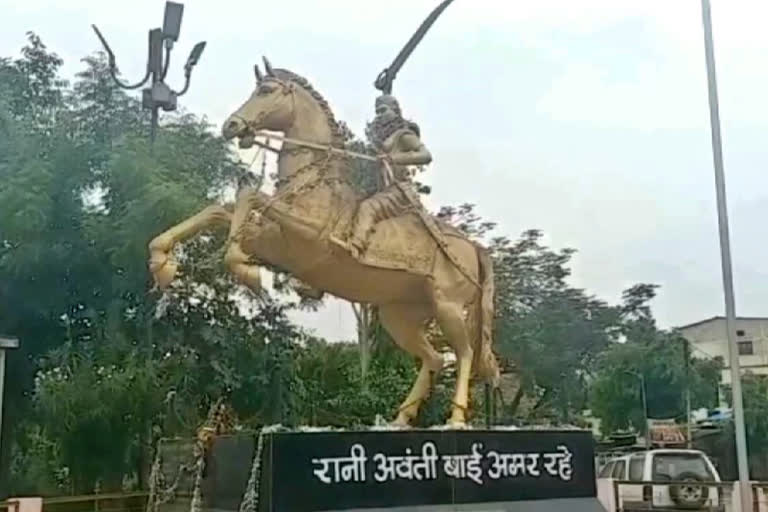Hyderabad: We all know the story of Rani Laxmibai. The warrior queen of Jhansi, who led a revolt against the British rule in the Indian Rebellion of 1857. But there are other figures in Indian history, not well known, but equally important to the freedom struggle. One of these figures was another queen who took up the sword and jumped in front of the English army to fight for the independence of her kingdom.
India may have gained Independence in 1947, but the seeds were planted nine decades before that in 1857, and one of the champions of the cause was Rani Avantibai of Ramgarh. Though her uprising was crushed by the British, her fight gave Indians the message that the sun can set on the British empire.
Avantibai was born on August 16, 1831, to Rao Jujhar Singh, a landlord of Mankehadi village in the Seoni district. Named Anto Bai by her parents, the young girl was well-versed in sword craft, archery, military strategy, diplomacy and statecraft. She was married into the royal family of the Princely State of Ramgarh in 1848, where she got her new name Avantibai.
Also read: Memories of 19-year-old freedom fighter Khudiram Bose still inspire Indians
In the year 1851, the King of Ramgarh State and father-in-law of Avantibai, Lakshman Singh Lodhi died and Prince Vikramaditya Singh Lodhi was crowned king of the Ramgarh State. But his health soon failed him and he began to keep unwell. As both their sons, Aman Singh and Sher Singh were still young, the queen took the reigns of the kingdom into her hands. But the East India Company had other plans.
The EIC was annexing kingdom after kingdom under their infamous "Doctrine of Lapse". The policy, devised by Lord Dalhousie, Governor-General of the East India Company, authorized the East India Company to appoint their administrators to princely states whose rulers were either "manifestly incompetent or died without a male heir."
With both sons of Vikramaditya Singh Lodhi too young to rule, the East India Company pounced on the opportunity to grab Ramgarh. They refused to recognize Avantibai as the ruler and appointed an administrator to the kingdom. Enraged by this insulting decision, the queen threw the administrator out of the kingdom and declared war on the British.
Avantibai's first battle against the British took place in the village of Kheri. With her mastery over battle tactics, Avantibai delivered a decisive defeat to the British troops. But the British soon reorganised in great numbers and mounted a devastating attack on Ramgarh, setting fire to the citadel. The queen and her troops fought valiantly but had to flee into the dense forests in the hills of Devharigarh.
Also read: The tale of Vidurashwatha firing and flag Satyagraha in Karnataka
Although bruised and battered by the British attack, Avantibai did not relent. She used guerilla tactics to attack General Waddington's camp. However, her small contingent was no match to the British military might. A final battle took place in the forests and the queen and her soldiers were vastly outnumbered and surrounded.
Realising that enemy forces would eventually overwhelm and capture them, the brave queen refused to surrender. On March 20, 1858, Avantibai raised her sword for the last time and ended her own life, dying on her own terms.
Although Avantibai, despite her valiant stand against the British, was defeated, her courage lit the fire of freedom that the British could not extinguish.



